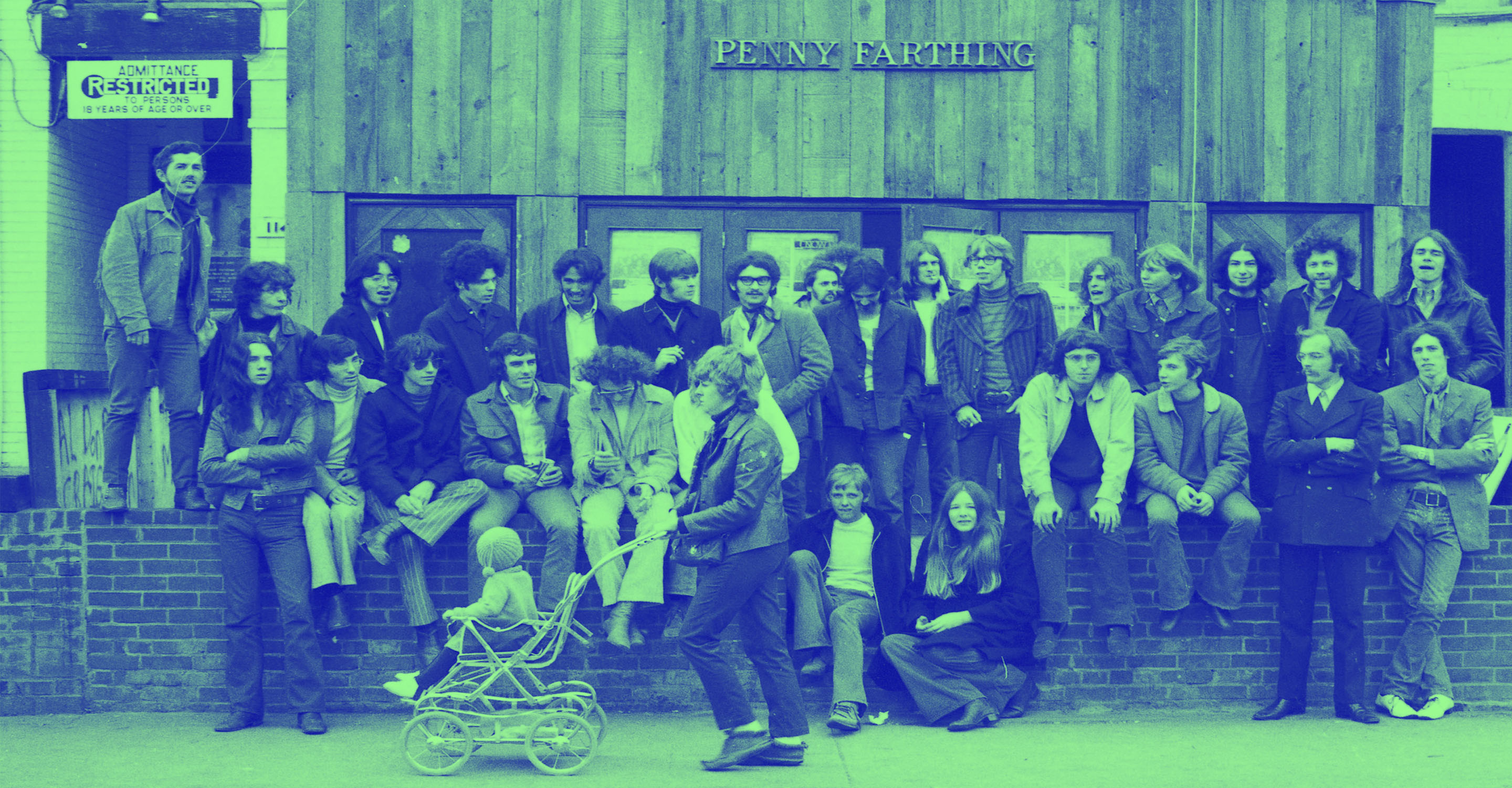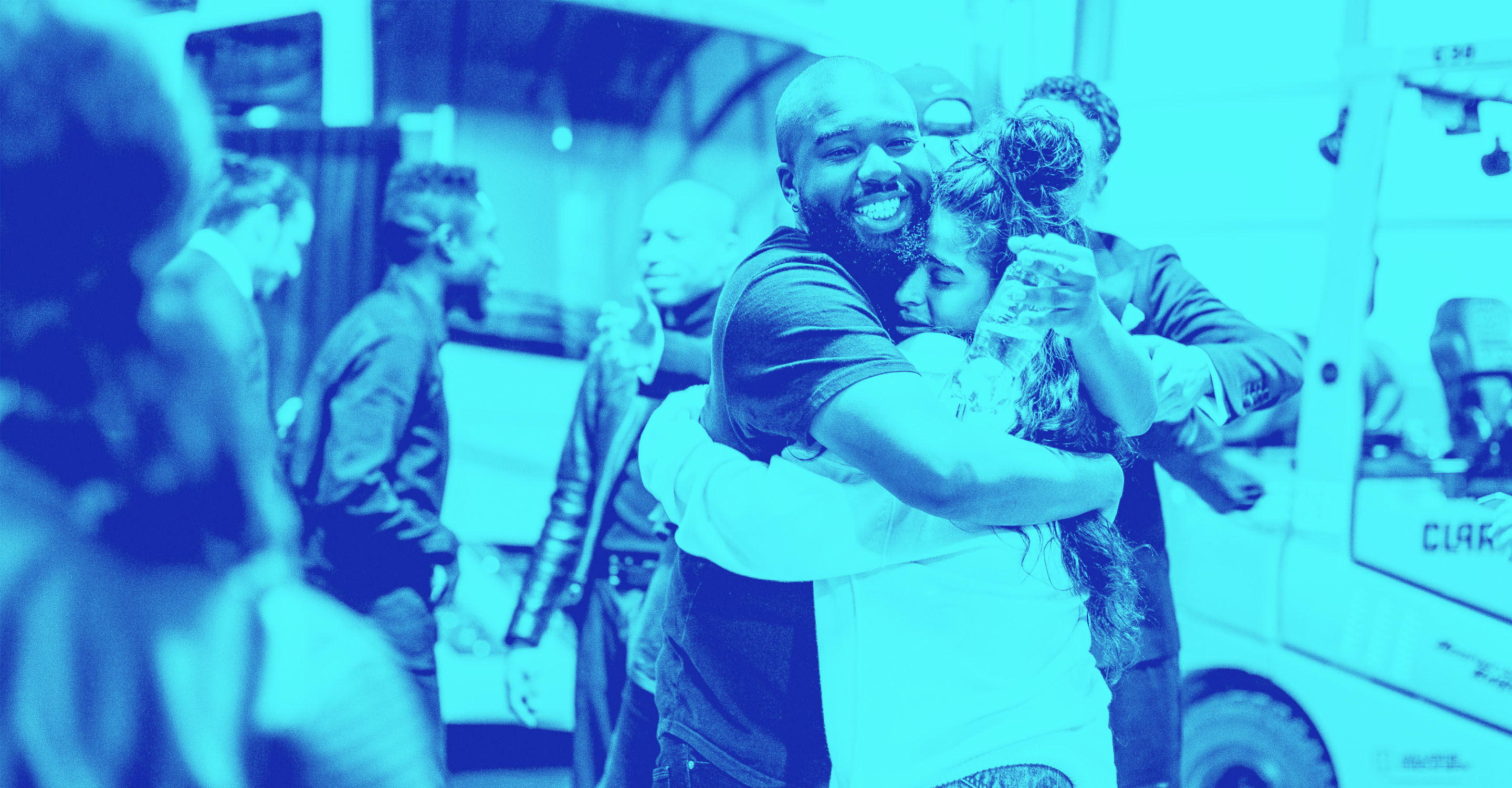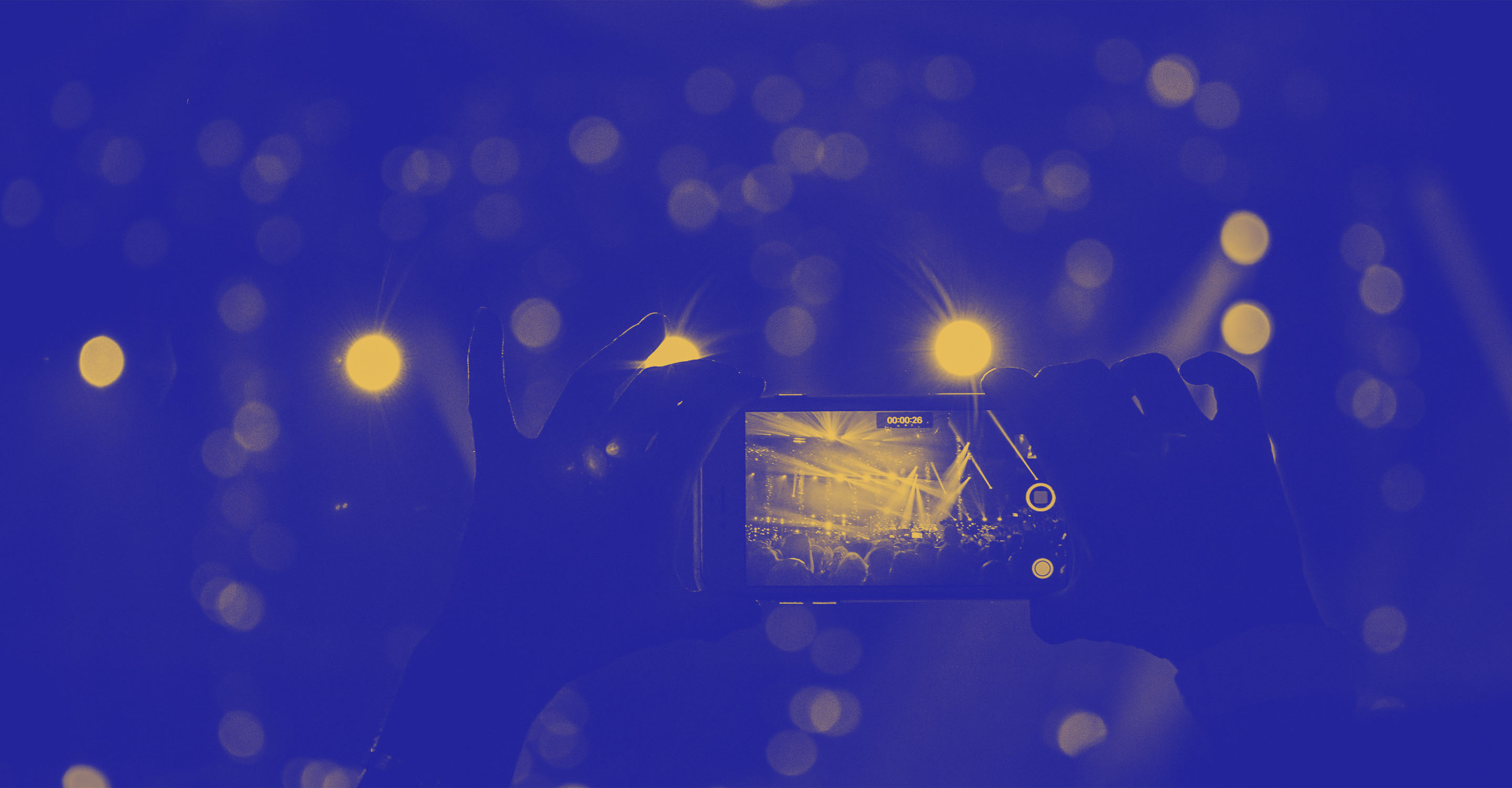
Music is a language of freedom: a tool for resistance and for social change, a message of hope and healing, and a lens for equity and diversity. Music connects us as individuals with every breath and heartbeat, removing social constructs and imposed barriers. In situations when there are no words that can express how we feel, there is often a song, a poem, or a lyric that we can hold on to.
Pushing Boundaries presents artists who have challenged listeners to hear and speak their truth: to pause and to listen. The socially engaged music of these artists continues to foster understanding, compassion, and empathy.
When musicians use their craft as a platform to stand up against racism, oppression, abuse, war, and stigmatization, they fight for social justice. With lyrics of inclusion and powerful protest music, they break down gender and social barriers, ensuring voices are heard especially from those of marginal groups.
When the world is full of social upheaval and unrest, music pushes boundaries and gives us the opportunity to transform our consciousness.
Music shapes who we are as individuals. Music has the power to impact, transform and create change.
Artists and musicians inspire us, lyrics and poetry move us, and pulsating rhythms encourage us to take a stand. As every song tells its story, musicians and music shine light on broader systemic and social issues.
Listen: A Playlist for Pushing Boundaries
Since the beginning of recorded history, artists have turned to their craft during times of despair, to shine light on political or social issues. Musicians have used songs as a rallying point, refining what music means to them.
The social justice movements of the past 65 years have a soundtrack: Songs of resistance, advocacy, and hope stand up to abuse, war, and the status quo.
Listen to the songs on the Pushing Boundaries playlist as you explore this section. The artists featured have broken barriers, rejected injustice, and created and held space for marginalized groups.
This online exhibition uses third-party applications including Spotify and YouTube. Check with your organization’s web administrator if you are unable to access content from these channels in the exhibition.
Jackie Shane
In the 1960s, as one of the first transgender women to sing, perform, entertain, and inspire, Jackie Shane was a pioneer in Toronto’s R&B soul music scene.
Performing regularly at the Saphire Tavern and the Palais Royale, Shane used music as a form of self-expression and identity, not caring about what other people thought.
Find Out More about Jackie Shane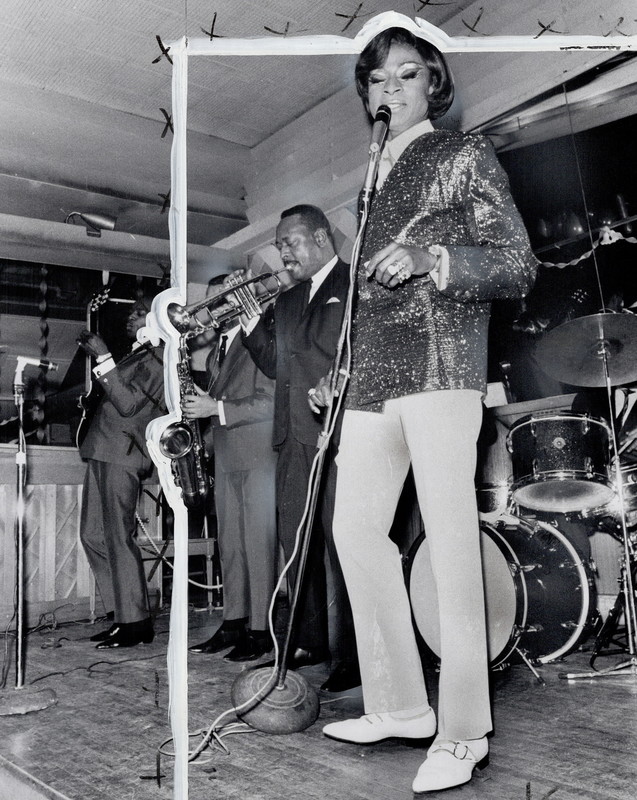
Soul singer Jackie Shane sings at the Palais Royale. Shane passed away in early 2019. "I have never felt that I had to change or do anything that wasn't natural to me," she told CBC Radio's q in a rare interview.
Photo by Jeff Goode, courtesy of the Toronto Star Photo Archives
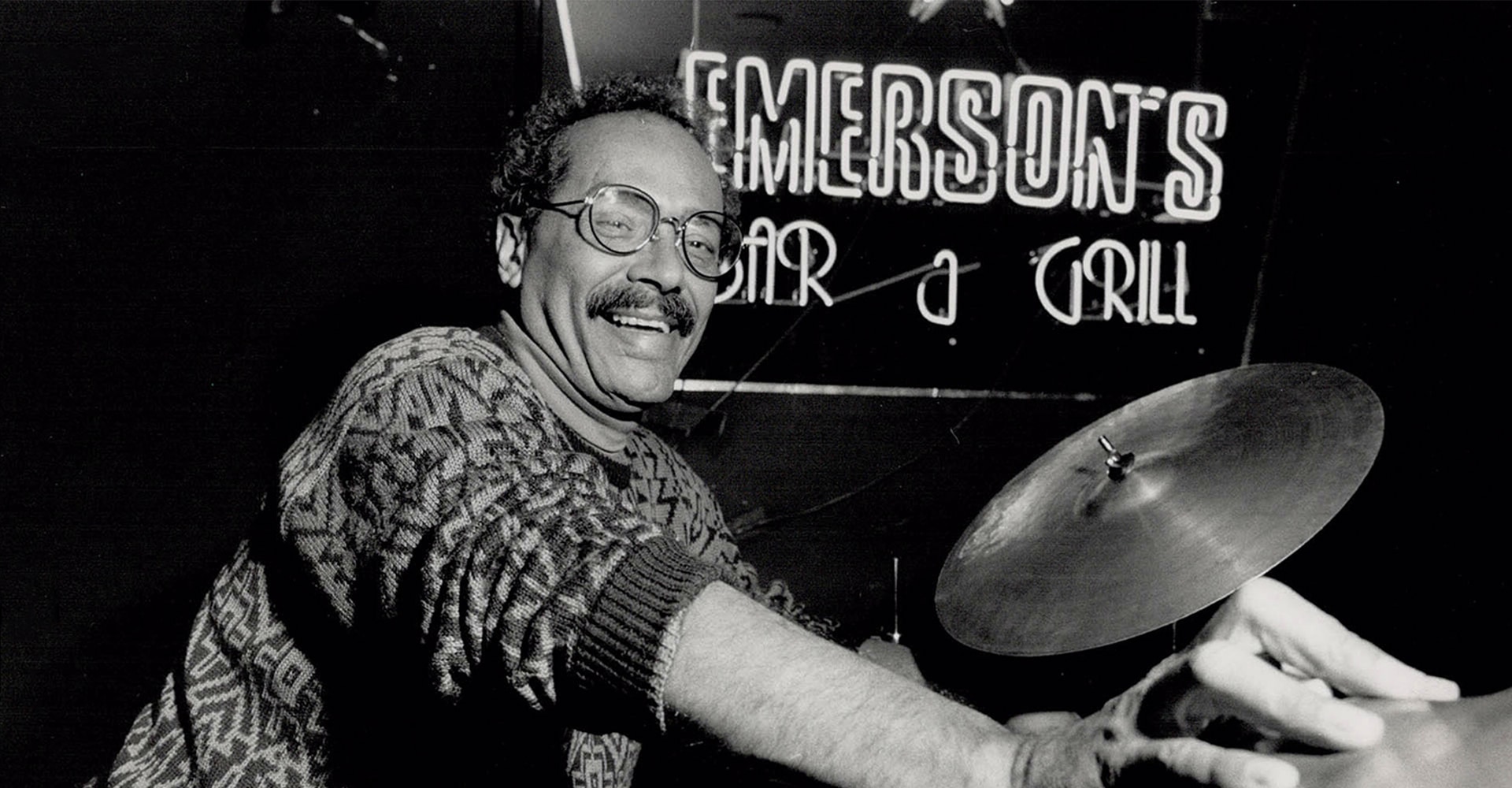
Drummer Archie Alleyne at Emerson's Bar and Grill, 1988.
Photo by Alan Dunlop, courtesy of the Toronto Star Photo Archives
Archie Alleyne
An activist and champion for Black rights, legendary jazz drummer, Archie Alleyne broke down colour barriers by becoming one of the first Black musicians to play in an all-white club on Yonge Street in the 1950s.
Buffy Sainte-Marie
Singer-songwriter and Indigenous social activist Buffy Sainte-Marie has been writing protest music for sixty years. Continuously involved with various communities, her work sheds light on the truth offering calls to action, healing, and helping to build bridges between cultures.
Find Out More about Buffy Sainte-Marie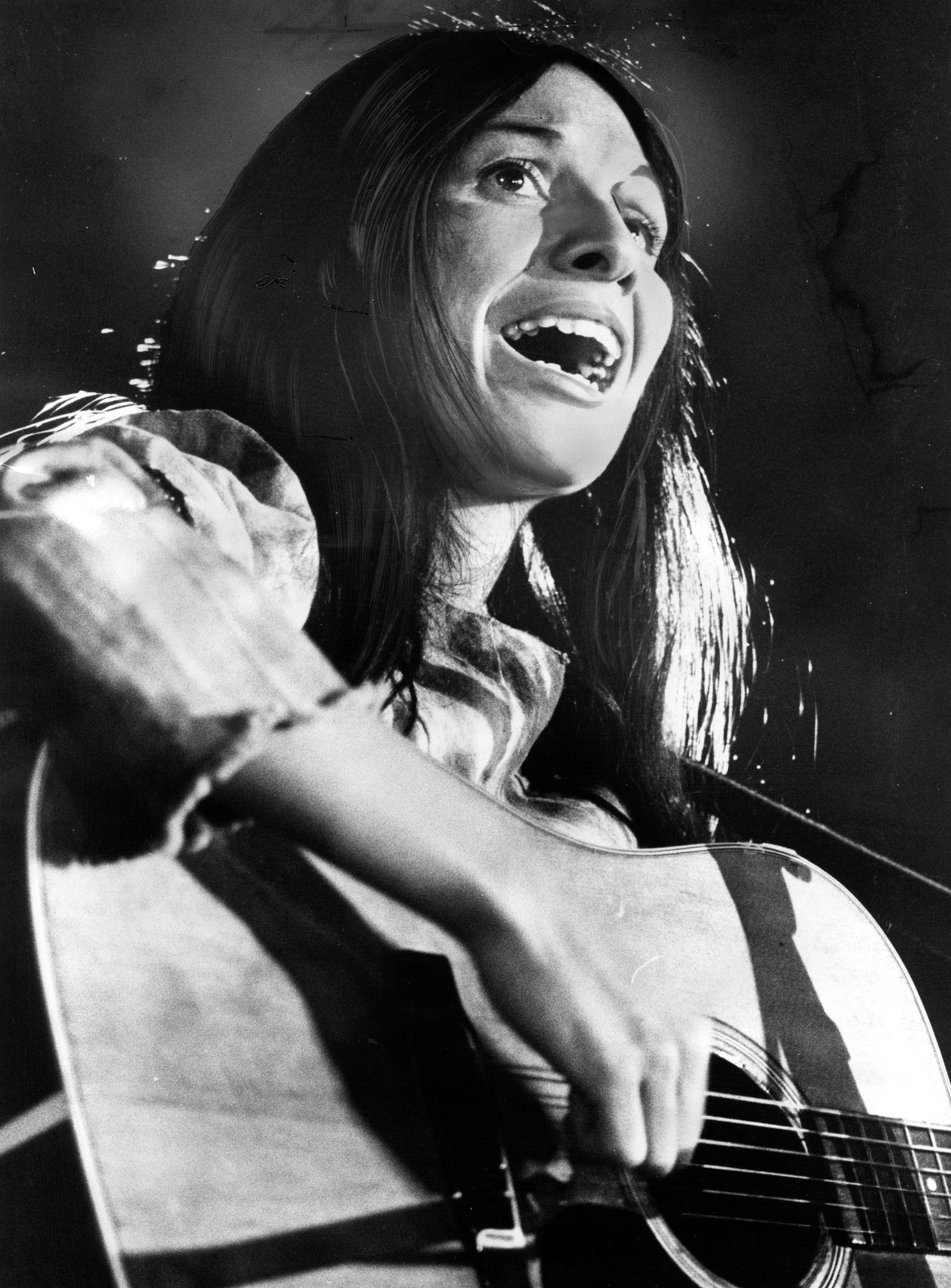
Buffy Sainte-Marie performing at Convocation Hall for the Ontario Natives Development Fund, March 15, 1970.
Photo by Boris Spremo, courtesy of the Toronto Star Archives
A protest song or an activist song can say something that somebody else can write a 400-page book about, and it will wind up on the shelf somewhere. What is good about a song, whatever it has to say, is that it is portable. It is replicable. Anybody can sing it.
— Buffy Sainte-Marie, November 17, 2017
Cultural and Creative Zeal
The 1980s were a time of creative fervour, radical consciousness, and social transformation. Torontonians switched on MuchMusic, which debuted in 1984, to witness the birth of the music video era. In the city's Queen Street West neighbourhood, a new arts community was thriving: new live music venues like the Rivoli and the BamBoo were spots were artists and musicians could collaborate and play music together.
Toronto’s arts community became a melting pot where different cultures began to mix and embrace one another, starting a new cultural revolution.
Lillian Allen
As a dub poet, musician, activist, and educator, Lillian Allen has addressed systemic inequalities and racism throughout her work.
Born in Jamaica, Allen moved to Toronto in the 1970s. Founder of the Toronto International Dub Poetry Festival and former Writer-in-Residence at Queen's University and the University of Windsor, Allen has found both a global audience for her own work and has also created new spaces for others to share theirs. A expert in cultural equity and collaborations, Allen continues to encourage her students to tell their stories and speak their truths.
Find Out More about Lillian Allen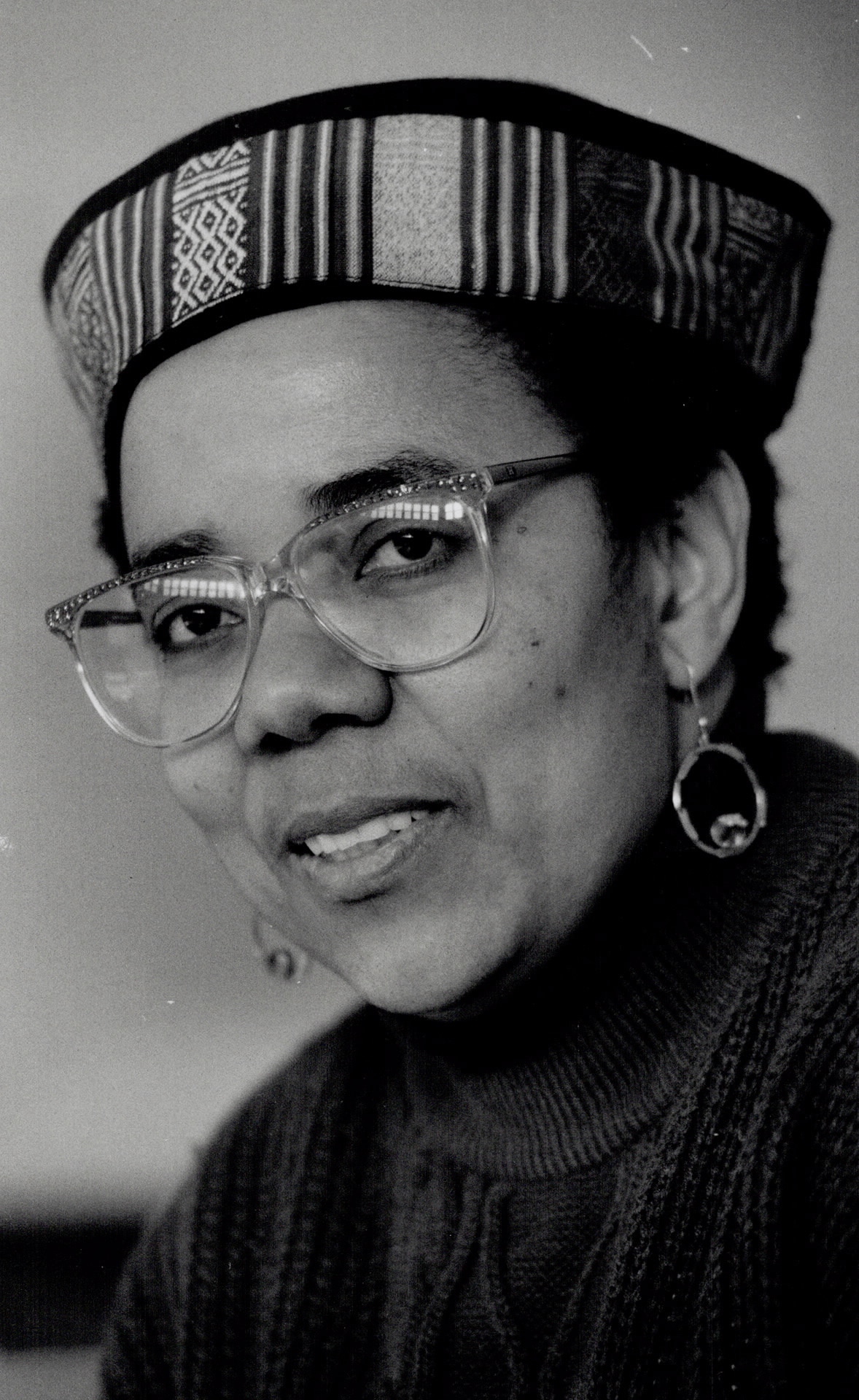
Lillian Allen, Toronto, 1991.
Photo by John Mahler, courtesy of the Toronto Star Photo Archives
There are no walls that are impenetrable with art.
— Lillian Allen
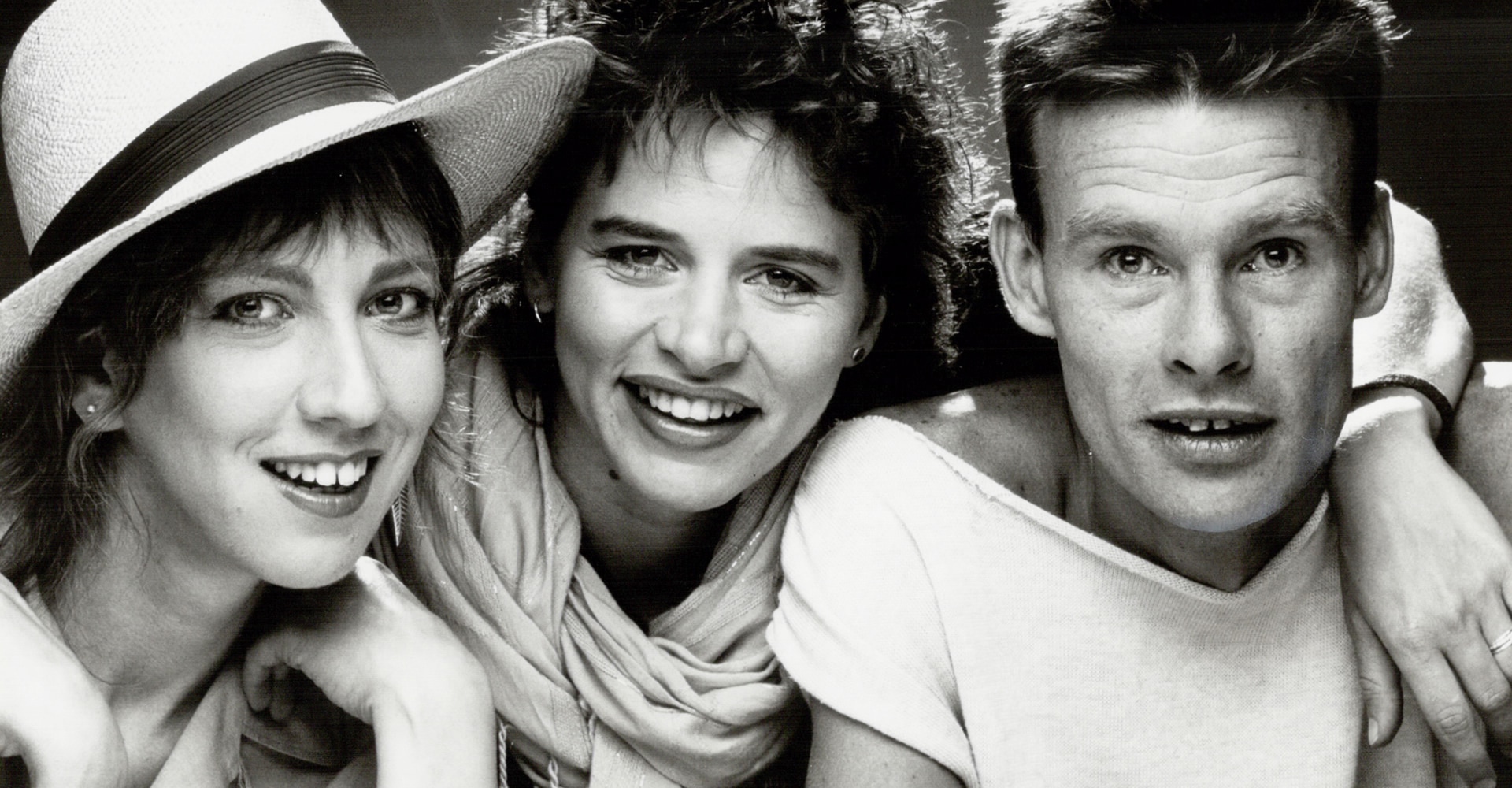
Portrait of Parachute Club, 1984.
Unknown photographer, courtesy of the Toronto Star Photo Archives
The Parachute Club
Lorraine Segato and the Parachute Club embraced diversity, mixing music, rhythm, and empowering their lyrics with social change and calls to action. Their 1980s Canadian anthem "Rise Up" speaks to inequality and sharing power.
For the song’s 35th anniversary in 2019, original band members Lorraine Segato and Julie Masi re-recorded their song with local young artists to encourage and nurture the next generation of youth leaders and activists.
Watch: Rise Up (2019)
Watch original band members of Parachute Club, Lorraine Segato and Julie Masi, re-record the Parachute Club's famous "Rise Up" single with local young artists to encourage and nurture the next generation of youth leaders and activists.
This online exhibition uses third-party applications including Spotify and YouTube. Check with your organization’s web administrator if you are unable to access content from these channels in the exhibition.

Courtesy of Warner Music Canada. Please note: this third-party video does not provide closed captions.
View Transcript[interior of a recording studio featuring numerous people singing in front of microphones, both alone and in groups]
Rise up, rise up
Oh, rise and share your power
Rise up, rise up
We're dancing to the sun
Rise up, rise up
In clear-eyed celebration
Rise up, rise up
The spirit's time has come
We want loving, want laughter again
We want heartbeat, want madness to end
We want dancing, want to run in the streets
We want freedom to live in its peace
We want power, want to make it okay
Want to be singing at the end of the day
Children to breathe a new light
We want freedom to love who we please
Rise up, rise up
Oh, rise and share your power
Rise up, rise up
Everybody's dancing to the sun
Rise up, rise up
It's time for celebration
Rise up, rise up
The spirit's time has come
Talking 'bout the right time to be working for peace
Wanting all the tensions in the world to ease
We want to love, run wild in the streets
We want to be free, we want to be free
Talking about a new way, talking about changing our names
Talking about building a land of our dreams
This tightrope's got to learn how to bend
Makin' new plans, we're gonna start it again
Rise up, rise up
Oh, rise and share your power
Rise up, rise up
Everybody's dancing to the sun
Rise up, rise up
In clear-eyed celebration
Rise up, rise up
The spirit's time has come
Rise up now
It's time, it's time, it's time
Rise up, rise up
Oh, rise and share your power
Rise up, rise up
We're dancing to the sun
Rise up, rise up
It's time for celebration
Rise up, rise up
Everybody's time has come
Spirit's time has come
Spirit's time has come
Rise up, rise up
Oh, rise and share your power
Rise up, rise up
Oh, dancing to the sun
Rise up, rise up
It's time for celebration
Rise up, rise up
The spirit's time has come
Woman's time has come
Spirit's time has come
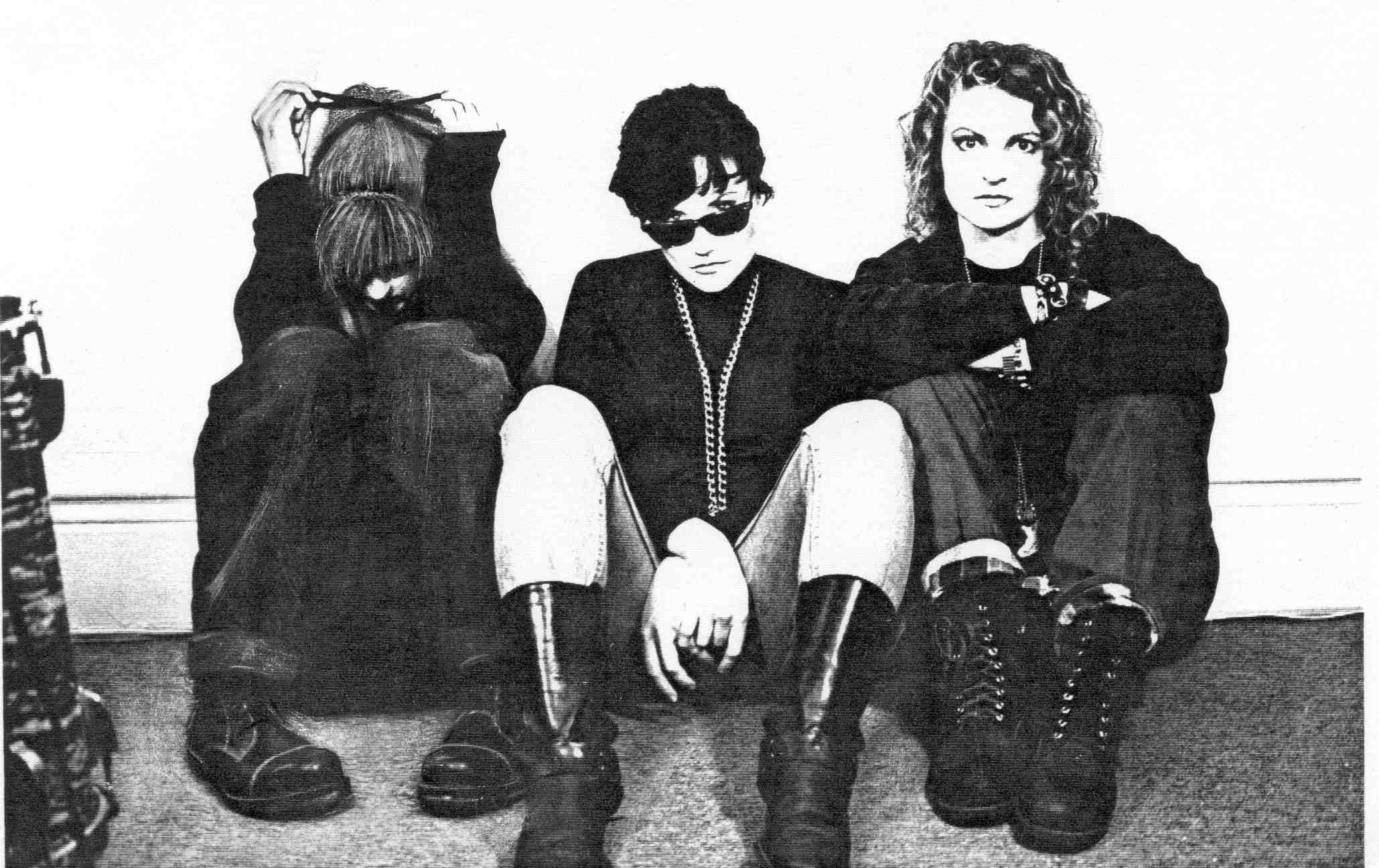
Members of Fifth Column: G.B. Jones, Caroline Azar, and Beverly Breckenridge.
Photo by Jena Von Brucker
Fifth Column
Coming off the heels of punk music, Fifth Column, an all-female queercore band, rejected the surrounding politics.
Making music, art, zines and Super 8 films, these DIY artists became activists using their music and voices as a platform for feminist resistance and criticizing culture in the 1980s and 1990s.
The Power of Music Today
Our contemporary world continues to be a place of unrest, and artists continue to raise their voices in calls for action, justice, and change.
Jeremy Dutcher
Jeremy Dutcher’s 2018 debut album Wolastoqiyik Lintuwakonawa, which translates to The Songs of the People of the Beautiful River, is sung entirely in Wolastoqey, an Indigenous language with less than one hundred speakers left. With his voice, Dutcher has taken the music world by storm.
Find Out More about Jeremy Dutcher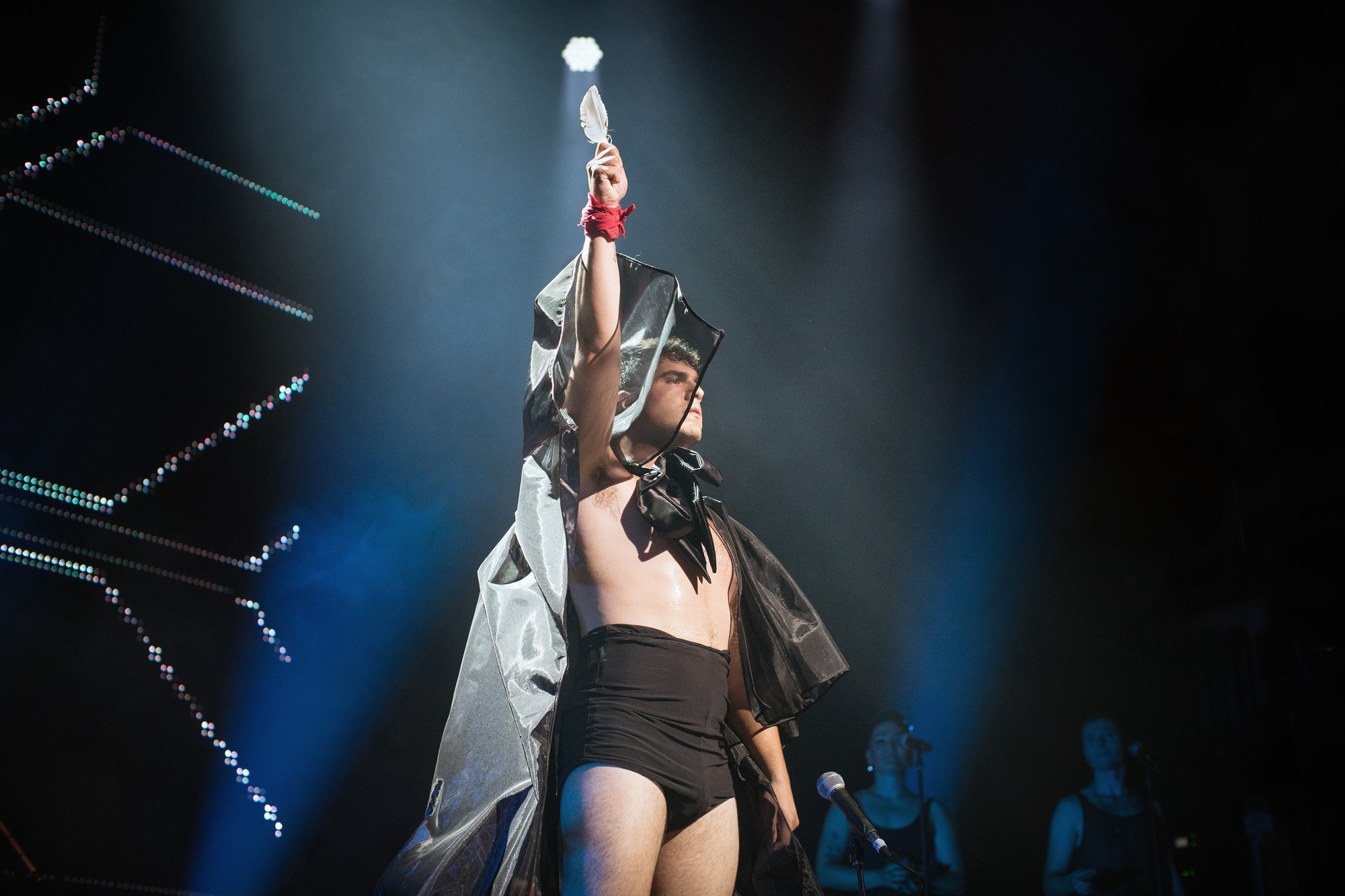
Jeremy Dutcher ends his performance at the 2018 Polaris Music Prize Gala at the Carlu, Toronto.
Photo by Dustin Rabin, courtesy of the Polaris Music Prize
I believe my work is to engage the young people and get them excited about the wealth of knowledge that sits within our language and our songs. The days of internalized colonialism are done.
— Jeremy Dutcher
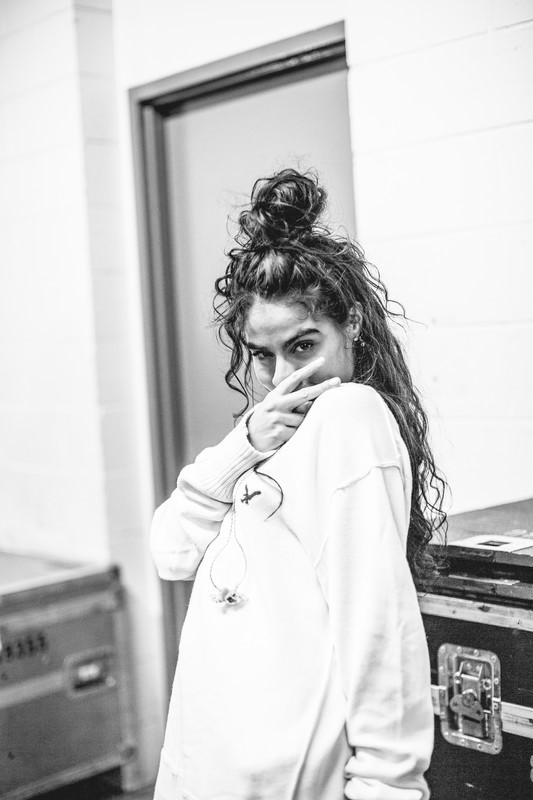
Jessie Reyez backstage at the JUNO Awards in Vancouver, 2018.
Photo by Ryan Bolton
Jessie Reyez
Singing from a place of truth, Jessie Reyez passionately bears her emotions, setting her own standards and holding space with honesty, integrity, and impeccable strength.
She actively sings and speaks about feminism, fighting double standards, calling out misogyny within the music industry and systematic prejudices with governments and politics.
PUP
Morbid Stuff, the third album by Toronto's refreshingly honest pop-punk band PUP, expresses the struggles of mental health, sharing the band's journey through depression with their fans.
Find Out More about PUPWriting songs, for me, is about probing that darkness and then playing music with my friends...
I want to make people feel good despite how bleak they are. It’s a chance to show maybe we're not alone and maybe it’s alright.
—Stefan Babcock, PUP lead singer/guitarist
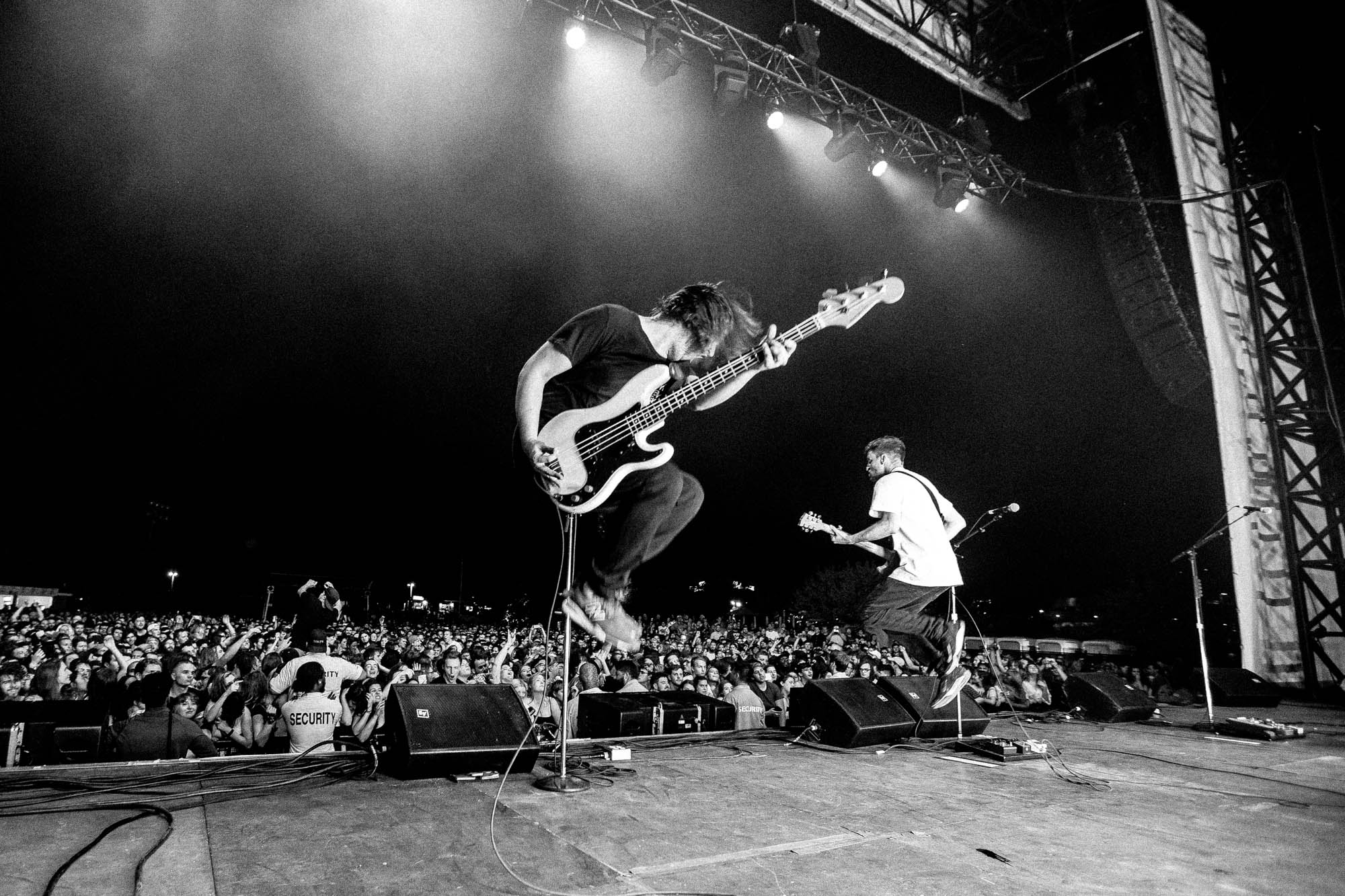
PUP performs at Echo Beach in Toronto in 2019.
Photo by Amanda Fotes
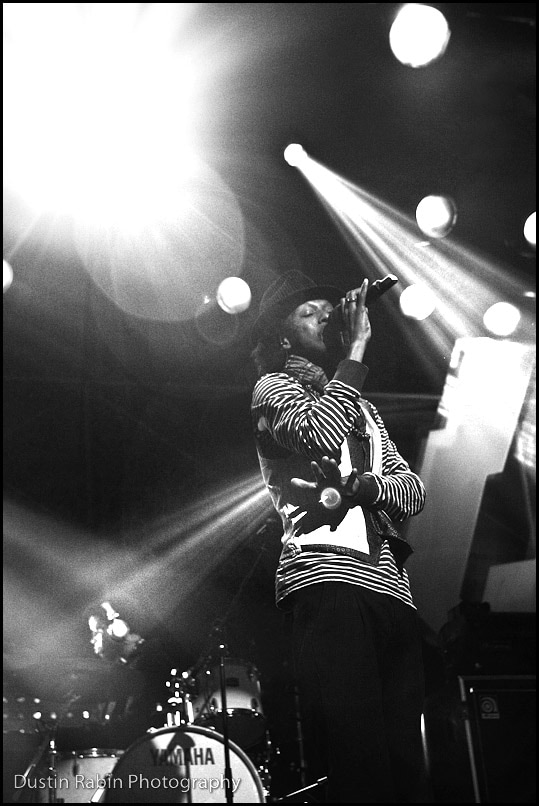
K'Naan performing at the 2009 Polaris Music Prize Gala at the Concert Hall.
Photo by Dustin Rabin, courtesy of the Polaris Music Prize
K'Naan
K’Naan struggled with his own mental health having witnessed the atrocities of war in Mogadishu, Somalia. He continuously wrote poems and song lyrics after immigrating to Canada describing these horrors and his experience as a refugee.
He combined his love for rap music with his African roots, creating his own unique sound and using his voice to raise awareness for the fight for freedom.
The transformational power of music pushes each one of us to be better, to do better, and to fight for social change.

